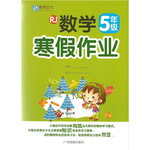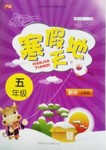
| |||||||||||||||||||||||||||||||||||||||||||||||||||||||||||||||||||||||||||||||||||||||||||||||||||||||||||||||||||||||||||||||||||||||||||||||||||||||||||||||||||||||||||||||||||||||||||||||||||||||||||||||||||||||||||||||||||||||||||||||||||||||||||||||||||||||||||||||||||||||||||
(1) |
从相似的问题上找解决新问题的办法。 |
(2) |
without thinking意为“不假思索”,可根据by trial or error判断。 |
(4) |
只有所有的方法失败了,才会开始分析问题。 |
(5) |
根据下文可知,人们的分析可分6个阶段或步骤。 |
(6) |
可根据下文的next, after, in the end等词判断。 |
(7) |
see此处有understand之意,Sam明白自行车有问题了。 |
(8) |
第二步要找出问题所在,所以选determine,它是“测定、找出”的意思,与find out意思相同。 |
(9) |
根据下文Sam所做的事情可知,要了解问题的有关情况才能修理,所以选information。 |
(10) |
自己去解决问题,首先得尝试、摸索,才能真正完成,所以possible合适,强调只是可能有效的方法。 |
(11) |
此时,这里不存在先后、转折、并列等含义,只需说明在这个阶段,Sam该做的事情。 |
(12) |
刚才那个阶段,Sam所做的事情是一些调查研究寻找方法的工作,study有“研究”之意,“讨论”“对比”都不合适。 |
(13) |
A项“额外的”,B项“足够”,D项“不计其数的”。这里需要的是几个不太确定的、可能的解决方法,所以C项最合适。 |
(14) |
再次以Sam为例。 |
(15) |
从上文中的“several suggestions”可知。 |
(16) |
从下文的事例中发现答案。 |
(17) |
由于发现了新的情况或用了不同方法去思考,会出现意想不到的结果。 |
(18) |
看见口香糖,他当即发现问题所在。 |
(19) |
有口香糖,清洗工作是必然的。 |
(20) |
方法被尝试、验证。 |


 黎明文化寒假作业系列答案
黎明文化寒假作业系列答案 寒假天地重庆出版社系列答案
寒假天地重庆出版社系列答案科目:高中英语 来源:高中课程新学案 高中三年级、英语 题型:054
| |||||||||||||||||||||||||||||||||||||||||||||||||||||||||||||||||||||||||||||||||||||||||||||||||||||||||||||||||||||||||||||||||||||||||||||||||||||||||||||||||||||||||||||||||||||||||||||||||||||||||||||||||||||||||||||||||||||||||||||||||||||||||||||||||||||||||||||||||||||||||||
查看答案和解析>>
科目:高中英语 来源:高中课程新学案 高中三年级、英语 题型:054
| |||||||||||||||||||||||||||||||||||||||||||||||||||||||||||||||||||||||||||||||||||||||||||||||||||||||||||||||||||||||||||||||||||||||||||||||||||||||||||||||||||||||||||||||||||||||||||||||||||||||||||||||||||||||||||||||||||||||||||||||||||||||||||||||||||||||||||||||||||||||||||
查看答案和解析>>
科目:高中英语 来源:英语教研室 题型:054
完形填空.
Some people do not like anything to be out of order. They are ___1___ late for work. They ___2____ the books to the library on time. They remember people's birthdays, and they pay the bills the moment they ____3____ Mr Dodds is ____4____ a man.
Mr Dodds works in a bank, and lives ____5____ his own. The only family is in the next town; his sister lives there with her ____6___, and her son ___7____ Mark. Mr Dodds doesn't see his sister, or _____8__ family, from one year to the next. He sends them Christmas cards, and he has not forgotten one of ____9____ seventeen birthdays.
last week Mr Dodds had quite an incident. He drove home from his office at the ____10___ time, ____11___ neither too slowly _____12____ too fast. He parked his car where he ___13____ parked it, out of the other cars, and he went ___14____ to make his evening meal. Straight away, there was a ____15___ at the door. Mr Dodds _____16___ the door, to find a policeman ____17____ on the doorsteps.
“What have I done ____18____?” Mr Dodds asked himself. “Have I ____19___ on the wrong side of the road? Has there been some trouble at the bank? Have I forgotten to pay an important bill?”
“Hello!____20___,” said the policeman, “my name is Mark.”
查看答案和解析>>
科目:高中英语 来源:黄冈重点作业 高一英语(下) 题型:054
完形填空:
Three men came to Dover Station at about nine o'clock one evening. They asked the assistant what time the next train was for London. The assistant said, “You've just 1 one. They go every hour. The next one is at ten o'clock. ”“That is 2 ,”they said, “we'll go and have a drink.”So they went to the nearest bar. A minute or two after ten o'clock, they came 3 and said to the assistant, “Has the train gone?” “Yes,” he said, “it went at ten o'clock 4 I told you. The next is at eleven o'clock.”
“That's OK,” they said, “we'll go and have another 5 .”So they went back to the bar.
They missed the eleven o'clock train in 6 way, and the assistant said, “Now, the next train is the 7 one; If you miss that, you 8 to London tonight.”
Twelve o'clock came, and the last train 9 out, when 10 of them came out of the bar running as hard as they 11 . Two of them got into a carriage just 12 the train was leaving but the third one didn't run 13 , and the train went out leaving him 14 . He stood there looking at the train and 15 , as if 16 a train was the best joke (玩笑) in the world. The assistant went up to him and said, “I told you that this was the last train. Why didn't you come 17 ?”
The man couldn't answer because of laughing. He laughed 18 the tears came into his eyes. Then he said, “Did you see those two fellows 19 into the train and leave me here?”
“Yes, I saw them,” said the assistant.
“Well, I was the one who was going to London; they only came 20 to see me off!”
1.
[ ]
2.
[ ]
3.
[ ]
4.
[ ]
5.
[ ]
6.
[ ]
7.
[ ]
8.
[ ]
9.
[ ]
10.
[ ]
11.
[ ]
12.
[ ]
13.
[ ]
14.
[ ]
15.
[ ]
16.
[ ]
17.
[ ]
18.
[ ]
19.
[ ]
20.
[ ]
查看答案和解析>>
科目:高中英语 来源: 题型:054
完形填空.
One afternoon just before Christmas, an old gentleman was wandering through the city center. The shops were packed ___1___ good things and ___2___ with cheerful shoppers. The children were gazing in wonder at all the toys on show in the ___3___. Suddenly in the middle of the crowd he saw a dirty little boy sitting on the pavement ___4____ bitterly. When the kind old man asked him why he was crying, the little boy told him that he had ___5___ a ten penny piece that his uncle had given him. Thrusting his hand into his ___6___ the old man pulled out a handful of coins. He ___7__ a shiny, new ten penny ___8___ and handed it to the boy. “___9___” said the little boy , drying his ___10___, he cheered ___11___ at once.
An hour ___12___ later the old man was ___13___ his way back the same route. To his ___14___ he saw the same dirty little boy in the same spot, crying just as bitterly as before. He went up __15___ the boy and asked him if he had lost ten pence he had given him. The little boy told him that ___16___ he had not lost the ___17__ coin, but he still could not find his first ten pence. “If I ___18____ find my own ten pence,”he said___19__,“I'd have___20___ pence now.”
查看答案和解析>>
湖北省互联网违法和不良信息举报平台 | 网上有害信息举报专区 | 电信诈骗举报专区 | 涉历史虚无主义有害信息举报专区 | 涉企侵权举报专区
违法和不良信息举报电话:027-86699610 举报邮箱:58377363@163.com